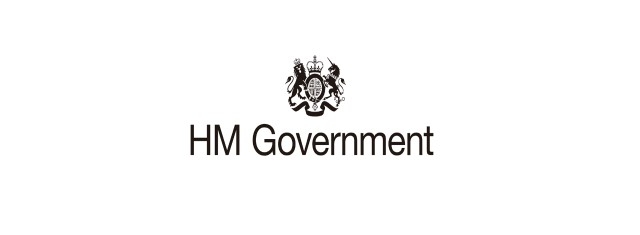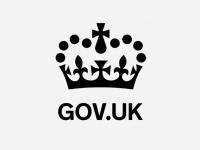Health
Prime Minister announces Tier 4: Stay At Home
Alert Level in response to new COVID var

(Source: © Crown copyright)
The Prime Minister has announced tougher restrictions for large parts of South East England with a new Tier 4: “˜Stay at Home´ alert level.
The decision follows a rapid rise in infections attributed to the rapid spread of a new variant of COVID-19.
Based on preliminary modelling data, the New and Emerging Respiratory Virus Threats Advisory Group (NERVTAG) now consider that the new strain can spread significantly more quickly and could increase R by 0.4 or more. New and existing data will continue to be analysed as we learn more about the variant.
The decision follows a rapid rise in infections attributed to the rapid spread of a new variant of COVID-19.
Based on preliminary modelling data, the New and Emerging Respiratory Virus Threats Advisory Group (NERVTAG) now consider that the new strain can spread significantly more quickly and could increase R by 0.4 or more. New and existing data will continue to be analysed as we learn more about the variant.
As a result, the following areas will move from Tier 3 to Tier 4:
Kent, Buckinghamshire, Berkshire, Surrey (excluding Waverley), Gosport, Havant, Portsmouth, Rother and Hastings;
London (all 32 boroughs and the City of London); and the East of England (Bedford, Central Bedford, Milton Keynes, Luton, Peterborough, Hertfordshire, Essex excluding Colchester, Uttlesford and Tendring).
Kent, Buckinghamshire, Berkshire, Surrey (excluding Waverley), Gosport, Havant, Portsmouth, Rother and Hastings;
London (all 32 boroughs and the City of London); and the East of England (Bedford, Central Bedford, Milton Keynes, Luton, Peterborough, Hertfordshire, Essex excluding Colchester, Uttlesford and Tendring).
In Tier 4 the “˜Stay At Home´ message will be put in law. As previously, there will be exemptions - including travelling for work or education, for childcare purposes, and for exercise.
People should not enter or leave Tier 4 areas, and Tier 4 residents must not stay overnight away from home. Where people cannot work from home, they should still travel to work, for example in the construction and manufacturing sectors.
Non-essential retail, indoor leisure [such as swimming pools and gyms], indoor entertainment [such as cinemas, bowling alleys and casinos], and personal care sectors [such as nail bars, barbers and hairdressers] must all close.
People should not enter or leave Tier 4 areas, and Tier 4 residents must not stay overnight away from home. Where people cannot work from home, they should still travel to work, for example in the construction and manufacturing sectors.
Non-essential retail, indoor leisure [such as swimming pools and gyms], indoor entertainment [such as cinemas, bowling alleys and casinos], and personal care sectors [such as nail bars, barbers and hairdressers] must all close.
Tighter social contact restrictions will also be introduced, meaning one person can meet with one other person in an outside public space. Rules on support bubbles and childcare bubbles will remain as currently, and communal worship can continue to take place.
For the clinically extremely vulnerable, the same advice as in November applies in Tier 4 areas. This says that those who are clinically extremely vulnerable, which includes people with certain types of cancer, people on immunosuppression therapy, and people with severe respiratory conditions, shouldn´t go to work and should limit time outside the home, and take exercise outside at less busy times.
The Prime Minister, Chief Medical Officer, Chief Scientific Advisor and Cabinet agreed that while no-one wants to impose these tougher measures, the new variant has significantly changed the current landscape and urgent action is needed to protect the NHS and save lives.
For the clinically extremely vulnerable, the same advice as in November applies in Tier 4 areas. This says that those who are clinically extremely vulnerable, which includes people with certain types of cancer, people on immunosuppression therapy, and people with severe respiratory conditions, shouldn´t go to work and should limit time outside the home, and take exercise outside at less busy times.
The Prime Minister, Chief Medical Officer, Chief Scientific Advisor and Cabinet agreed that while no-one wants to impose these tougher measures, the new variant has significantly changed the current landscape and urgent action is needed to protect the NHS and save lives.
Throughout the pandemic, the evidence has shown that rising rates will lead to increased hospital admissions, risking intolerable pressure on the NHS in the toughest winter months.
There is no current evidence to suggest the new variant causes a higher mortality rate, that it affects vaccines and treatments, or that testing will not detect cases.
The Prime Minister also said that given the risk the new variant poses, the Christmas bubble policy will no longer apply in Tier 4.
For Tiers 1, 2 and 3, Christmas bubbles can continue with up to three households able to meet, but for one day only on Christmas Day.
The government is also issuing new travel advice. Although the new variant is concentrated in Tier 4 areas, it is present at lower levels around the country.
People under Tier 1, 2, and 3 restrictions should stay local. People should not travel into or out of Tier 4 areas and those in Tier 4 areas will not be permitted to travel abroad, apart from limited exceptions including work and education.
Tier 4 rules will be reviewed on 30 December, as part of the wider review of all restrictions.
There is no current evidence to suggest the new variant causes a higher mortality rate, that it affects vaccines and treatments, or that testing will not detect cases.
The Prime Minister also said that given the risk the new variant poses, the Christmas bubble policy will no longer apply in Tier 4.
For Tiers 1, 2 and 3, Christmas bubbles can continue with up to three households able to meet, but for one day only on Christmas Day.
The government is also issuing new travel advice. Although the new variant is concentrated in Tier 4 areas, it is present at lower levels around the country.
People under Tier 1, 2, and 3 restrictions should stay local. People should not travel into or out of Tier 4 areas and those in Tier 4 areas will not be permitted to travel abroad, apart from limited exceptions including work and education.
Tier 4 rules will be reviewed on 30 December, as part of the wider review of all restrictions.
more information: https://www.gov.uk
Liability for this article lies with the author, who also holds the copyright. Editorial content from USPA may be quoted on other websites as long as the quote comprises no more than 5% of the entire text, is marked as such and the source is named (via hyperlink).






